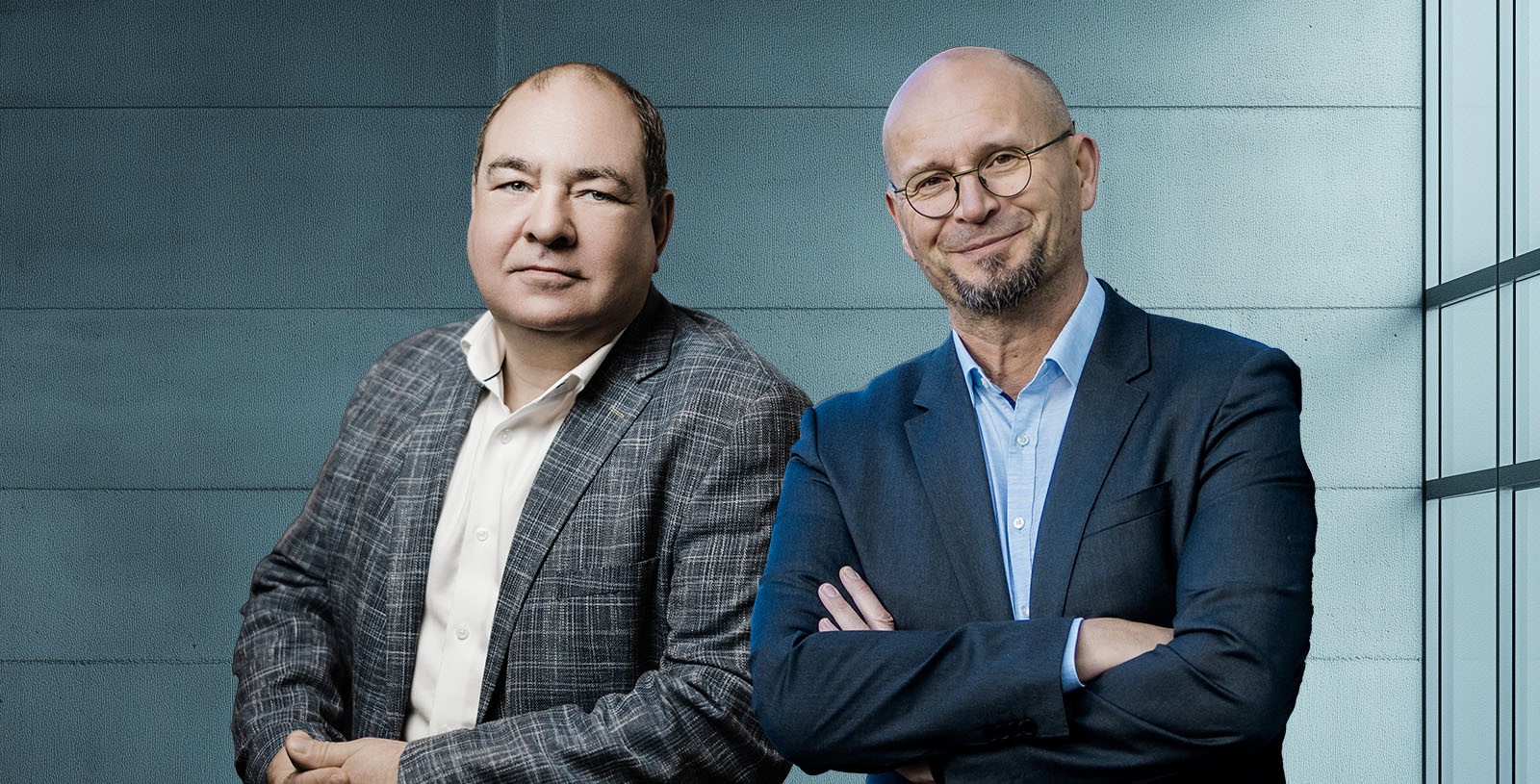Business development
Sustainable Computing
Nov 02, 2020
Business development
Sustainable Computing
Nov 02, 2020





In the modern world of innovation, technology and informatics, there is an advancement in every sector of life. Those enhancements simplify and enrich our lives with new services. They transition manual and mundane tasks to automatic and seamless services and add new services that drive modernization and solve world’s challenges. A vast amount of those services will be powered by Artificial Intelligence (AI) and operated in the cloud. More specifically, in a Data Center. Data Centers are campuses located in various places around the world or in “proximity” where those services are required. Data Centers require an immense amount of electricity, cooling and connectivity.
Carbon emissions
One of the world’s biggest challenges is carbon emissions. About 3,7% of annual carbon emissions originate from our gadgets, the internet and the systems supporting them. It is a similar amount to the carbon emissions released by the airline industry. These emissions will double by 2025, according to some estimates. According to Uptime Institute, “Energy use by data centers and IT will continue to rise, putting pressure on energy infrastructure and raising questions about carbon emissions”. As we increase services that solve various problems and enrich our lifes we must avoid increasing carbon emissions by non-sustainable cloud computing infrastructure.
Datacenter hubs have challenges
It seems like the industry uses similar or same locations for placing their data centers. In Europe, Ireland has been experiencing a boom over the past decade as the chosen location for establishing large scale data centers. Dublin has been called the “datacenter capital of Europe.” Ireland hosts at least 54 data centers, consuming over 700MW and hosting brand name customers (hyper scalers) such as Amazon, Google and Microsoft. Another 10 data centers are under construction, and an additional 31 have planning permission, which would add another 629MW of energy consumption. Irish success comes at a cost, requiring new energy infrastructure resulting in increased emissions. Ireland is becoming the EU’s worst carbon emission offender. It is facing fines of over €250 million for missing 2020 targets on reducing greenhouse gas emissions.
Industry & environmental organization awareness
The industry is well aware of the cloud’s carbon emissions and increasingly committing to becoming carbon-free. Microsoft, Apple, Google, and many others have set a goal to become carbon neutral. Microsoft, for instance, recently announced plans to stop using diesel generators by 2030. However, earlier this year, Microsoft applied for adding five new diesel generators at its new Columbia C06 datacenter, totaling 40 diesel engines at the facility.
Intel recently launched an initiative called RISE that calls for Carbon Neutral Computing. It addresses semiconductor manufacturing and energy-efficient PCs, but it is unclear if it includes Datacenters and cloud computing.
Greenpeace published a report in 2017 titled “Clicking Clean: Who is winning the race to build a green Internet?” It lists and grades various services such as video streaming, messaging, blogs, and social media for their environmental footprint. They keep an updated score on their clickclean website for users to see how their vendor services rank.
Network world recently pubished and article with 10 Tips for Choosing the Best Green Data Center. It is interesting that there seems to be no consistent way in measuring data centers and services for their use of renewable energy. The EPA (Environmental Pollution Agency) for instance show drastically different results than Greenpeace. It may be due to the complex use of Carbon offsets and Renewable Energy Certificates.
The impact of AI and High Performance Computing (HPC)
As reported by IDC, AI systems will grow by 20% in the upcoming years. For instance, banking can use AI technologies to boost revenues by increasing the personalization of services to customers. AI can also help:
Transition from reactive to proactive health care. Smart pacemakers, heart monitors, oxygen tanks, and blood glucose monitors are a few of the vast array of AI-based products.
Save trillions of dollars in operating expenses for the banking industry by moving from the notoriously labor-intensive underwriting process to back-office users that will integrate individualized consumer psychographic pattern profiles with real-time data.
Drive the evolution of the transportation industry, both commuter cars and commercial fleets, with autonomous vehicles.
Retrofit factory floors with AI in manufacturing, implementing AI in replacing systems still that still predate the internet age. This includes anything from vegetable canning lines that have seen little changed since WWII to boxboard factories still maintaining 40-year-old processes.
Boost retail margins. Early adopters of AI in retail settings have enjoyed a profit margin increase of 5%—a significant number in a business where margins can be tight.
AI is an HPC workload. HPC workloads are incredibly energy-intensive. Suppose we are to benefit from the promise of AI; we also need to cater for enough electricity to operate the systems. We would need to make sure that the electricity is clean. Take an example of an electric, autonomous vehicle. Such vehicles are a not so distant promise with reduced carbon emissions from the streets. It will make no sense to eliminate those carbon emissions if the data center that operates the AI processes for the autonomous replacement vehicle produces the same or more carbon emissions.
Environmental sustainability – a business imperative
Environmental sustainability is a business imperative. Carbon emissions, increasing sea levels and pollution are growing public and shareholder awareness. Corporations are pressured to take an active role in finding solutions and be accountable by setting goals and publicly documenting results. The IT industry needs to find a way to reduce power use from fossil fuel. Datacenter efficiency and sustainability are vital. The solution is non-trivial, and the challenge is being intensified as massive digitalization of data globally is creating a parallel demand for energy.
In the modern world of innovation, technology and informatics, there is an advancement in every sector of life. Those enhancements simplify and enrich our lives with new services. They transition manual and mundane tasks to automatic and seamless services and add new services that drive modernization and solve world’s challenges. A vast amount of those services will be powered by Artificial Intelligence (AI) and operated in the cloud. More specifically, in a Data Center. Data Centers are campuses located in various places around the world or in “proximity” where those services are required. Data Centers require an immense amount of electricity, cooling and connectivity.
Carbon emissions
One of the world’s biggest challenges is carbon emissions. About 3,7% of annual carbon emissions originate from our gadgets, the internet and the systems supporting them. It is a similar amount to the carbon emissions released by the airline industry. These emissions will double by 2025, according to some estimates. According to Uptime Institute, “Energy use by data centers and IT will continue to rise, putting pressure on energy infrastructure and raising questions about carbon emissions”. As we increase services that solve various problems and enrich our lifes we must avoid increasing carbon emissions by non-sustainable cloud computing infrastructure.
Datacenter hubs have challenges
It seems like the industry uses similar or same locations for placing their data centers. In Europe, Ireland has been experiencing a boom over the past decade as the chosen location for establishing large scale data centers. Dublin has been called the “datacenter capital of Europe.” Ireland hosts at least 54 data centers, consuming over 700MW and hosting brand name customers (hyper scalers) such as Amazon, Google and Microsoft. Another 10 data centers are under construction, and an additional 31 have planning permission, which would add another 629MW of energy consumption. Irish success comes at a cost, requiring new energy infrastructure resulting in increased emissions. Ireland is becoming the EU’s worst carbon emission offender. It is facing fines of over €250 million for missing 2020 targets on reducing greenhouse gas emissions.
Industry & environmental organization awareness
The industry is well aware of the cloud’s carbon emissions and increasingly committing to becoming carbon-free. Microsoft, Apple, Google, and many others have set a goal to become carbon neutral. Microsoft, for instance, recently announced plans to stop using diesel generators by 2030. However, earlier this year, Microsoft applied for adding five new diesel generators at its new Columbia C06 datacenter, totaling 40 diesel engines at the facility.
Intel recently launched an initiative called RISE that calls for Carbon Neutral Computing. It addresses semiconductor manufacturing and energy-efficient PCs, but it is unclear if it includes Datacenters and cloud computing.
Greenpeace published a report in 2017 titled “Clicking Clean: Who is winning the race to build a green Internet?” It lists and grades various services such as video streaming, messaging, blogs, and social media for their environmental footprint. They keep an updated score on their clickclean website for users to see how their vendor services rank.
Network world recently pubished and article with 10 Tips for Choosing the Best Green Data Center. It is interesting that there seems to be no consistent way in measuring data centers and services for their use of renewable energy. The EPA (Environmental Pollution Agency) for instance show drastically different results than Greenpeace. It may be due to the complex use of Carbon offsets and Renewable Energy Certificates.
The impact of AI and High Performance Computing (HPC)
As reported by IDC, AI systems will grow by 20% in the upcoming years. For instance, banking can use AI technologies to boost revenues by increasing the personalization of services to customers. AI can also help:
Transition from reactive to proactive health care. Smart pacemakers, heart monitors, oxygen tanks, and blood glucose monitors are a few of the vast array of AI-based products.
Save trillions of dollars in operating expenses for the banking industry by moving from the notoriously labor-intensive underwriting process to back-office users that will integrate individualized consumer psychographic pattern profiles with real-time data.
Drive the evolution of the transportation industry, both commuter cars and commercial fleets, with autonomous vehicles.
Retrofit factory floors with AI in manufacturing, implementing AI in replacing systems still that still predate the internet age. This includes anything from vegetable canning lines that have seen little changed since WWII to boxboard factories still maintaining 40-year-old processes.
Boost retail margins. Early adopters of AI in retail settings have enjoyed a profit margin increase of 5%—a significant number in a business where margins can be tight.
AI is an HPC workload. HPC workloads are incredibly energy-intensive. Suppose we are to benefit from the promise of AI; we also need to cater for enough electricity to operate the systems. We would need to make sure that the electricity is clean. Take an example of an electric, autonomous vehicle. Such vehicles are a not so distant promise with reduced carbon emissions from the streets. It will make no sense to eliminate those carbon emissions if the data center that operates the AI processes for the autonomous replacement vehicle produces the same or more carbon emissions.
Environmental sustainability – a business imperative
Environmental sustainability is a business imperative. Carbon emissions, increasing sea levels and pollution are growing public and shareholder awareness. Corporations are pressured to take an active role in finding solutions and be accountable by setting goals and publicly documenting results. The IT industry needs to find a way to reduce power use from fossil fuel. Datacenter efficiency and sustainability are vital. The solution is non-trivial, and the challenge is being intensified as massive digitalization of data globally is creating a parallel demand for energy.
More Insights
More Insights
Solutions
©
2025
Borealis ehf., All rights reserved.


Solutions


Borealis ehf., All rights reserved.
©
2025
Solutions
©
2025
Borealis ehf., All rights reserved.


Solutions
©
2025
Borealis ehf., All rights reserved.


Solutions
©
2025
Borealis ehf., All rights reserved.





